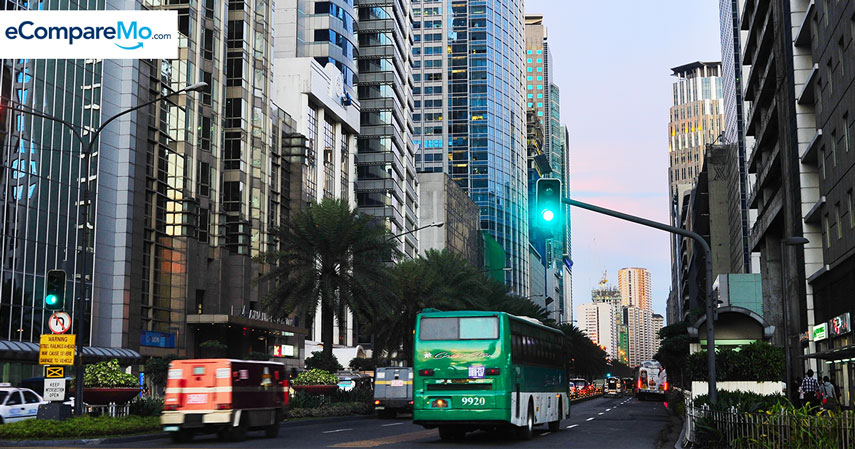How Your Income Tax Will Be Computed Under The New Proposed Program
3 min read
With the new administration recently sworn into office, the country is now off to a fresh start. Some of the changes being pushed to implementation is the proposed tax overhaul endorsed by businessman and former Agriculture Secretary Carlos “Sonny†Dominguez, who is now heading President Rodrigo Duterte’s Finance Department.
In the Comprehensive Tax Reform Program, the agency under former Finance Secretary Cesar Purisima intended to lower individual taxes and even exempt 11 million minimum-wage earners from income tax. Despite the good intentions of the said tax overhaul, the plan never saw the light of day under the previous administration.
Meanwhile, things are now looking good in Congress. Marikina City Rep. Miro Quimbo has expressed his interest in pushing tax reforms on the legislative side of the government. He is joining Muntinlupa City Rep. Rozzano Rufino Biazon in making priority bills for the 17th Congress,. Under House Bill 20, newer tax brackets will hopefully be introduced.
Second highest in Southeast Asia
With the ASEAN integration closing in, business groups and other financial think-tanks are advising the government to implement tax reforms now.
According to Rappler, the Philippines has the second highest tax systems for individuals and highest for corporations in the region. In contrast, richer countries like Singapore—which has the biggest foreign direct investments in the regions—has rates of 20% for personal income tax and 17% for corporate income tax.
What makes our 19-year-old tax system, which is way overdue for a reform, hostile to individuals? Here is how tax is computed under the current tax bracket used by the Bureau of Internal Revenue (BIR) for individuals:
| Amount of Net Taxable Income | Rate | |
| Over | But not over | |
| P10,000 | 5% | |
| P10,000 | P30,000 | P500 + 10% of the Excess over P10,000 |
| P30,000 | P70,000 | P2,500 + 15% of the Excess over P30,000 |
| P70,000 | P140,000 | P85,000 + 20% of the Excess over P70,000 |
| P140,000 | P250,000 | P22,500 + 25% of the Excess over P140,000 |
| P250,000 | P500,000 | P50,000 + 30% of the Excess over P250,000 |
| P500,000 | P125,000 + 32% of the Excess over P500,000 in 2000 and onwards | |
Since then, the Tax Reform Act of 1997 has neither been reformed nor adjusted to the inflation.
New brackets
Rep. Quimbo’s proposed tax bracket has a different take from the 19-year-old obsolete tax system we still use. “In the current system, 6.2 million Filipino workers bear the brunt of paying the individual income tax collection of BIR,” Quimbo told ABS-CBN News. “This means only 16% of our 22.2 million wage and salary workers serve as the milking cow of BIR. We cannot allow the suffering of our workers to perpetuate under our archaic and unfair tax system. We must ensure that they are able to live comfortably to provide for their families.â€
Here’s the proposed tax bracket under the House Bill 20:
| Amount of Net Taxable Income | Rate | |
| Over | But not over | |
| P21,613 | 5% | |
| P21,613 | P64,839 | P1,080 + 10% of the Excess over P21,613 |
| P64,839 | P151,290 | P5,402 + 15% of the Excess over P64,839 |
| P151,290 | P302,581 | P18,370 + 20% of the Excess over P151,290 |
| P302,581 | P540,323 | P48,628 + 25% of the Excess over P302,581 |
| P540,323 | P1,080,645 | P108,063 + 30% of the Excess over P540,323 |
| P1,080,645 | P270,160 + 32% of the Excess over P1,080,645 | |
How much will you save with the new tax system?
The new tax reform seems promising, especially that people with lower income will have more to take home. But how does exactly will it help the Filipinos? Here’s a sample scenario:
A mid-level programmer working in Makati with a basic gross salary of P30,000 per month will have to pay P5,349.78 in taxes after contribution fees for SSS, Philhealth, and PAGIBIG have been deducted. Automatically, this guy’s salary already falls to the second to the highest bracket at 30% rate.
With the proposed tax bracketing system, the taxes collected from the people will be much lower. Using the same taxable income of P347,324.40 annual income (with deductions already factored in), the annual tax to be withheld from his salary will be P4,984.48. Unlike in the 1997 tax law, the said salary level will just be under the 25% bracket.
Will this work out fine for the government? The effects are not yet certain, given that it will lower the collections of the BIR. But given that it will help people with lower salaries bring home more money to their families, that can never be a bad thing. –Dino Mari Testa
